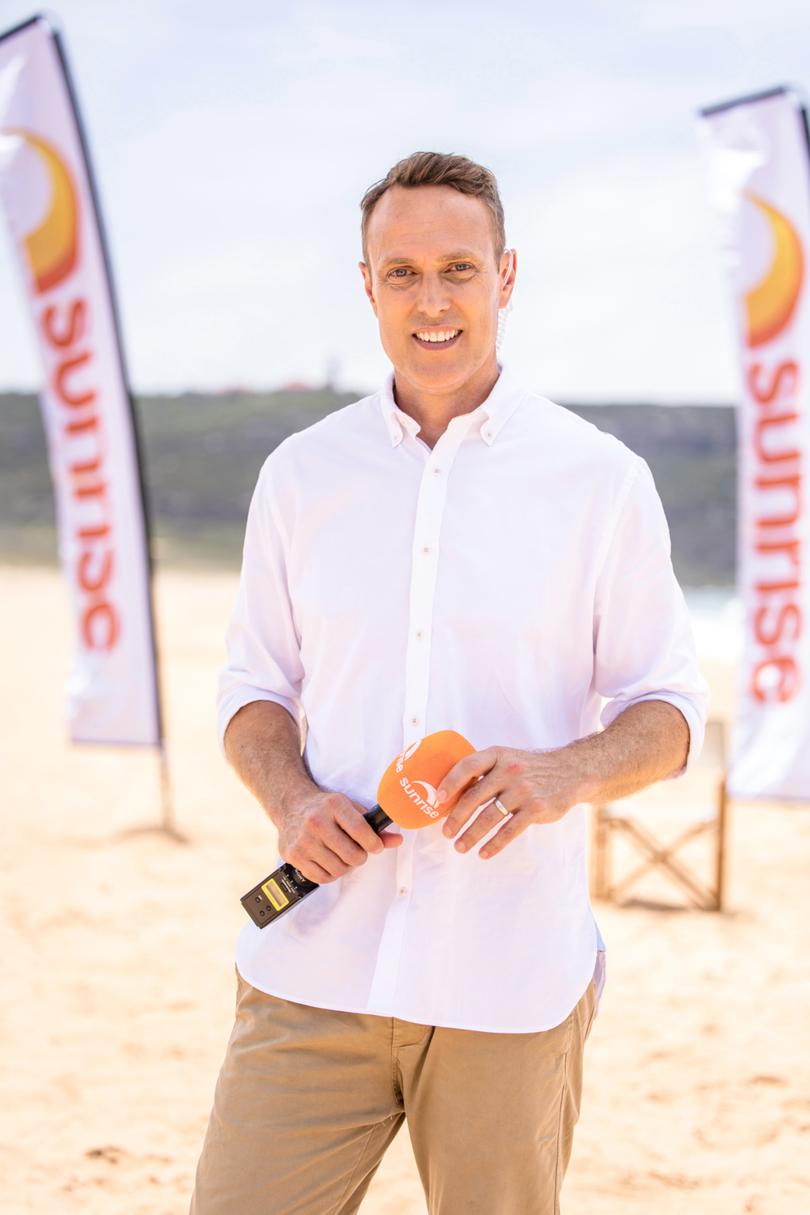Olympian Matt Shirvington’s plea to keep major sporting events free on TV and get anti-siphoning laws right
Sunrise host Matt Shirvington remembers watching Carl Lewis compete at the 1984 Olympic Games in Los Angeles.
The then six-year-old was awestruck by the gold medallist’s athletic prowess on a track more than 12,000km away.
Back in Davidson in Sydney’s northern beaches, Shirvington the kid was glued to the television screen while his mum Jenny ironed behind him.
Sign up to The Nightly's newsletters.
Get the first look at the digital newspaper, curated daily stories and breaking headlines delivered to your inbox.
By continuing you agree to our Terms and Privacy Policy.“I remember watching it so clearly, he was such an amazing athlete,” recalled Shirvington.
“I said ‘Wow I would love to do that one day’. She (Mum) said ‘That’s the Olympic Games, it happens every four years’. I said ‘The next time it happens I’ll be 10’.”
Shirvington says watching nine-time track and field gold medallist dominate at the Olympics inspired him to become an athlete and says proposed changes to anti-siphoning laws don’t go far enough in safeguarding the free broadcast of sport for future generations.
“For me, I think we’re not just stopping people from watching sport, we may be losing the platform of inspiration for future Australian athletes,” he said.

“I remember watching the Olympics when I was six-years-old. I turned to my mum and said to her ‘I want to do that one day’.”
Shirvington got his chance at his dream at the age of 22 at the Olympic Games in his home city in 2000.
And 20 years later when Shirvington travelled to Tokyo to cover the Olympic Games as part of Seven’s broadcast team, he met athletes who had watched him compete on television.
“So many of those athletes in that Tokyo team spoke about being inspired by having the Olympics in Australia in Sydney,” the 45-year-old told The Nightly.
“And inspired by watching Cathy Freeman run and watching Ian Thorpe swim.
“Television is not only about being a fan, it’s about inspiring the next generation of Australian athletes.”
An increasing number of Australians are watching television on free-to-air streaming services instead of with an aerial.
Anti-siphoning laws prevent subscription television from gaining the rights to events before free-to-air television but streaming services are currently not covered.
Proposed reforms would stop streaming services such as Amazon and Disney from purchasing exclusive television broadcast rights to sporting events such as the Olympics but not from purchasing exclusive digital rights.
Free TV has calculated that the average Aussies could be slugged anywhere from $84.95 to $151.95 per month to access the sport they love if the law reforms are not expanded.

Shirvington said the proposed reforms did not go far enough to protect the free broadcast of major sporting events such as The Matildas taking on Sweden at the Women’s World Cup last year.
“The way I look at it is we’re trying to future proof the accessibility to sport for Australians,” he said.
“That’s fundamentally what it is. I think part of the problem with the government’s legislation is it just falls short of understanding what the future looks like for TV viewers, for digital viewers and that’s concerning.”

